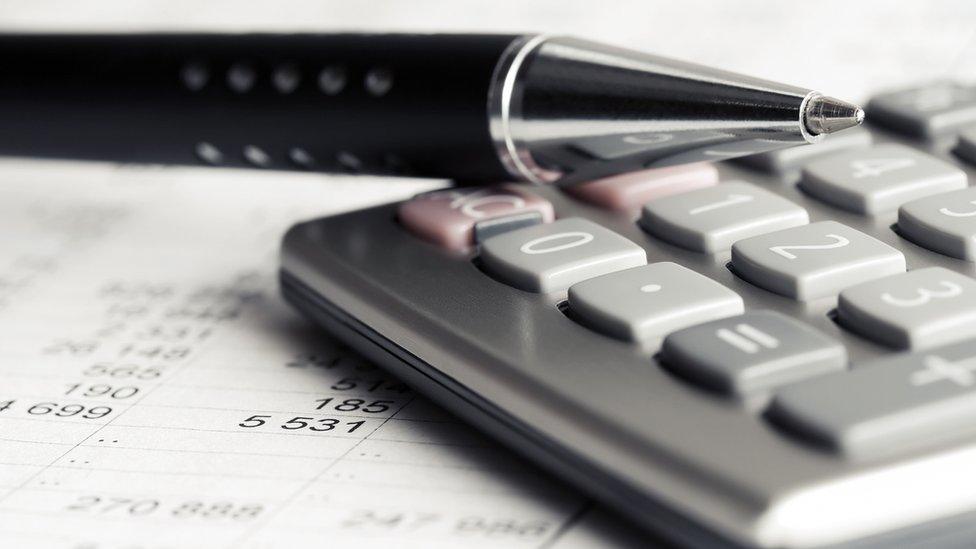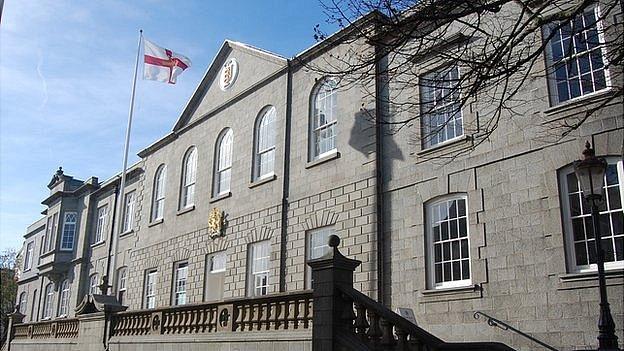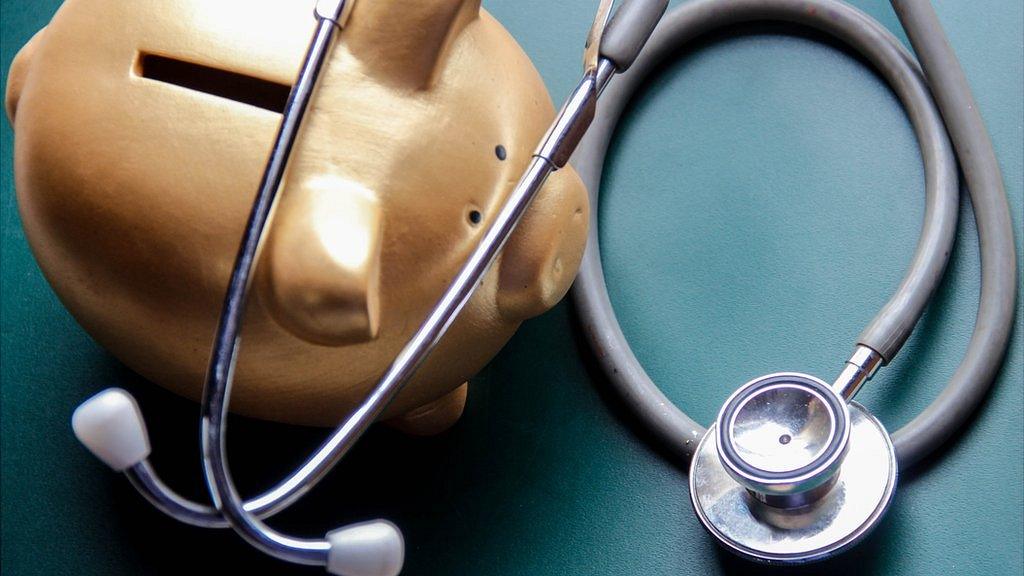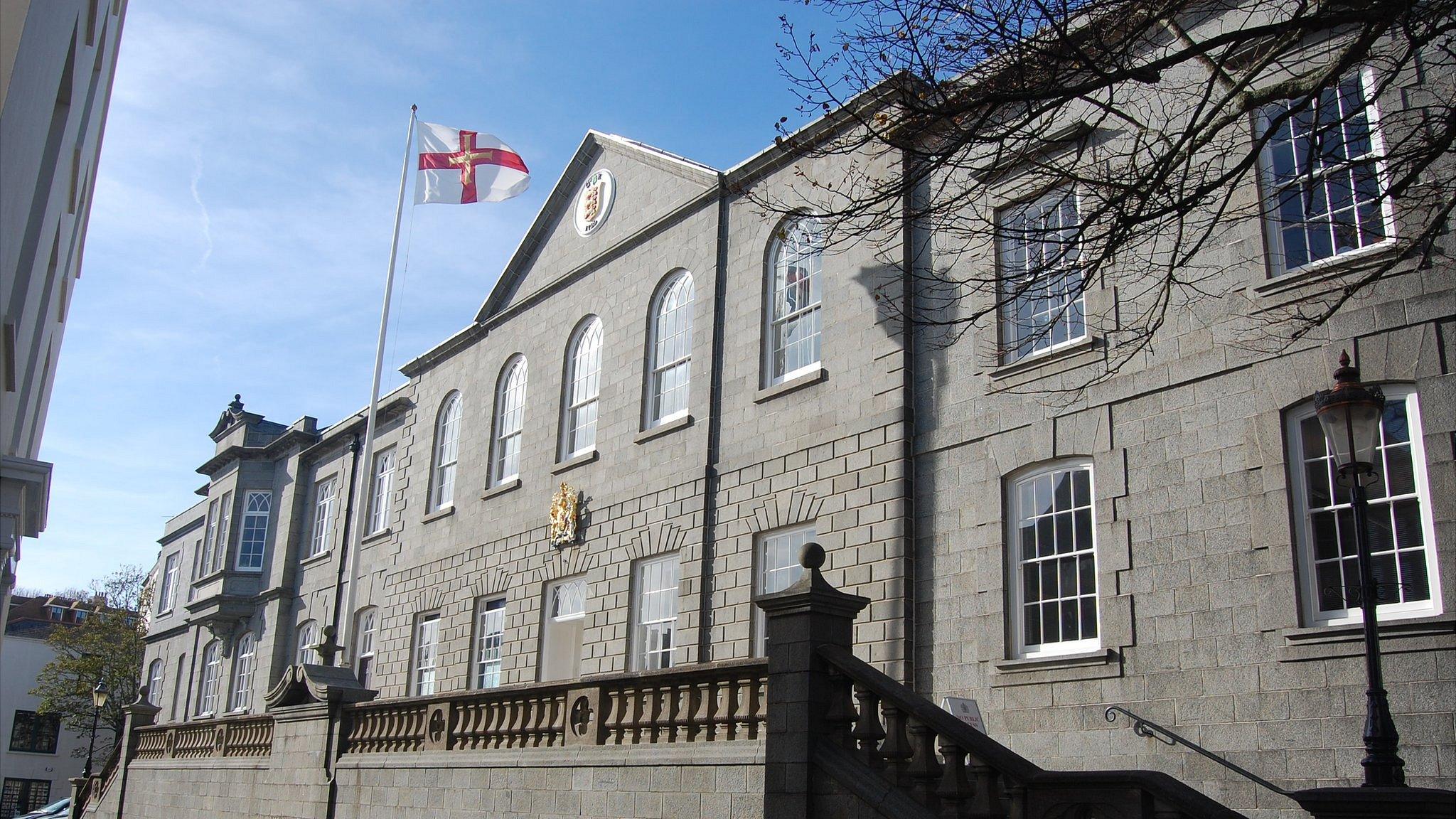Guernsey tax allowance to end for high earners
- Published

Deputy Gavin St Pier said the budget would allow additional funding to be made available for health and social care services
Tax breaks will no longer be available to high earners under proposals in the States of Guernsey budget for 2017.
Personal tax allowances allow people to earn about £10,000 a year tax free.
The change will affect about 1,150 people, about 3% of taxpayers, who earn more than £138,000 annually and would generate £2.4m in tax receipts a year.
The move comes alongside increases in the allowances which are due to lose the States about £1.1m a year.
The Policy and Resources Committee said the changes were "in order to maintain Guernsey's personal tax competitiveness with other jurisdictions, such as Jersey, the Isle of Man and the UK".
As part of the proposals, extra allowances for those aged over 65 could be removed from 2019 as it is "considered to be inequitable, positively discriminating in favour of older people but not targeting those most in need".

Guernsey Budget headlines
3.4% increase in personal tax allowances for those aged under 65- £10,000 for a single person
Reduced or no allowance for those earning more than £138,000
Sugar tax report due in 2018 budget with possible public consultation next year
TRP (property tax) to rise for both commercial and domestic properties, 5% and 10.5% respectively
Document duty to be graduated - saving about £2,000 on the sale of an average property at £435,000
Further money will be needed to offset Aurigny's ongoing losses
States commercial arms to be tasked with contributing £5m a year to revenue
The above are to be voted on by the States in November, while the plans below take effect immediately.
Motor fuel to rise by 5p to 63.5p per litre
Marine fuel to rise by 3.8p to 40.4p per litre
Cigarette duty rises by 5.6% and 8.1% for other tobacco products - so a pack of 20 would be £4.64 duty
Rises in alcohol duty making it 42.6p per pint of medium strength beer or cider or £12.74 on a litre of spirits

Deputy Gavin St Pier, President of the committee, described the budget as a "challenge" after revenue shortfalls in 2015 and 2016, but claimed it is "responsible, fair, progressive and realistic".
He said the "burden had been shared fairly" between cuts in public sector spending by about £10m and duty and tax increases expected to earn £5.4m.
"The budget is also realistic and recognises the need to make additional funding available for health and social care services ahead of their reform and to increase funding for investment in our capital infrastructure," he added.
- Published4 October 2016

- Published8 June 2016

- Published29 October 2015

- Published8 July 2015
